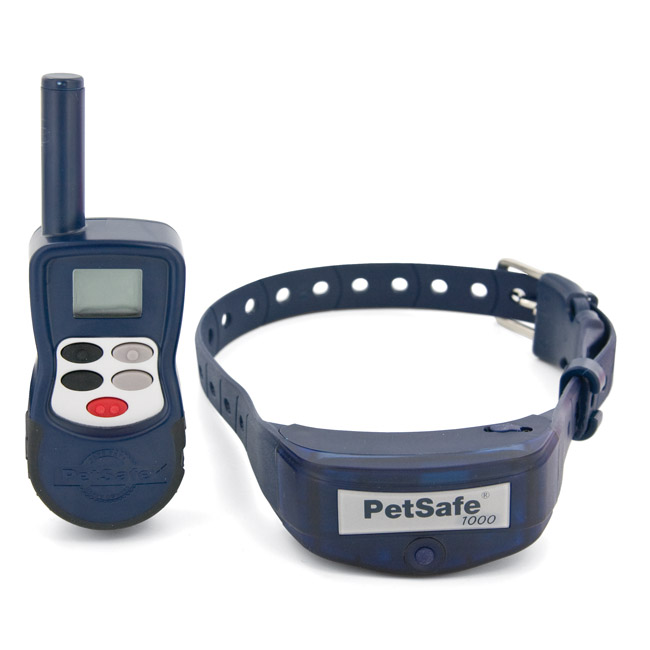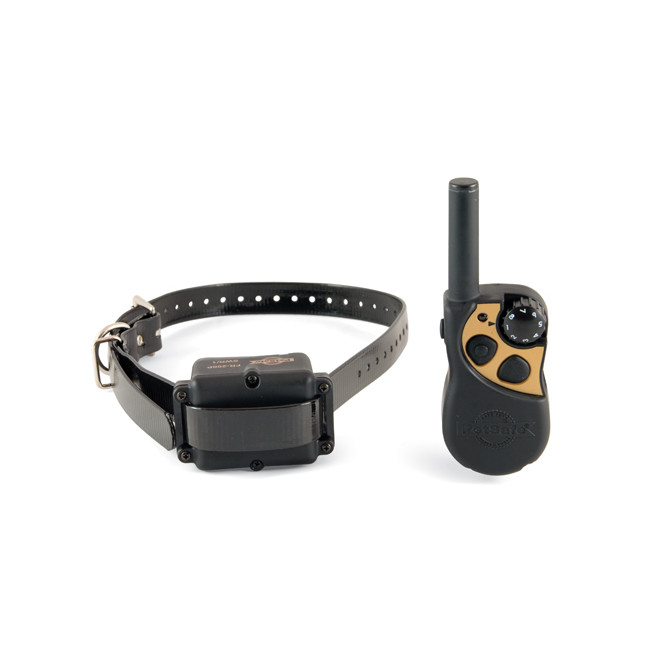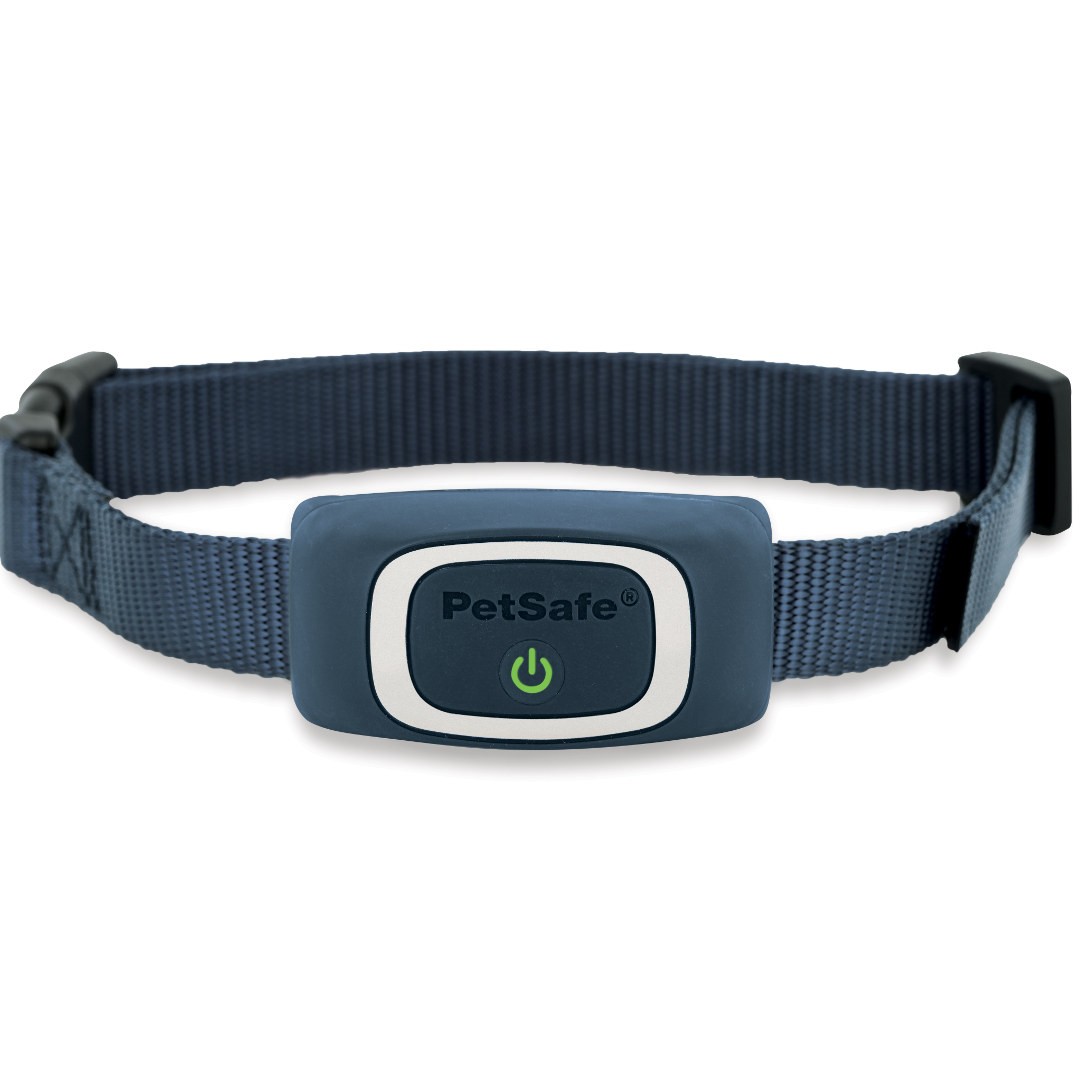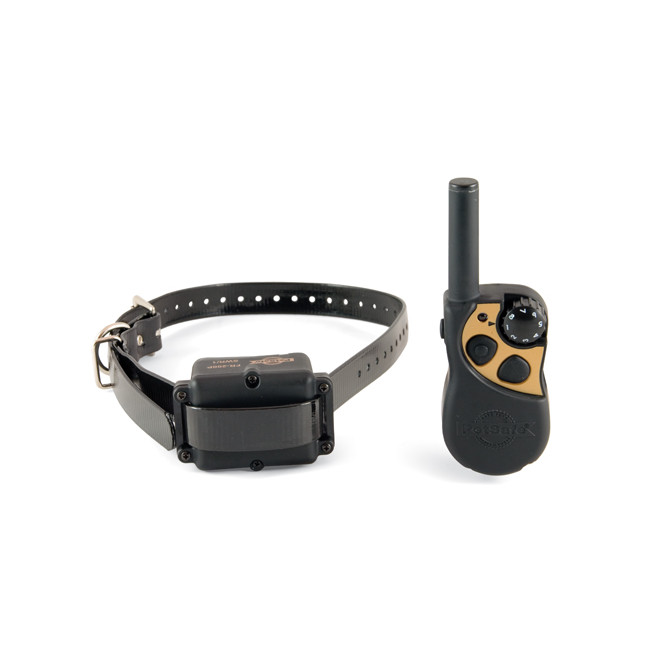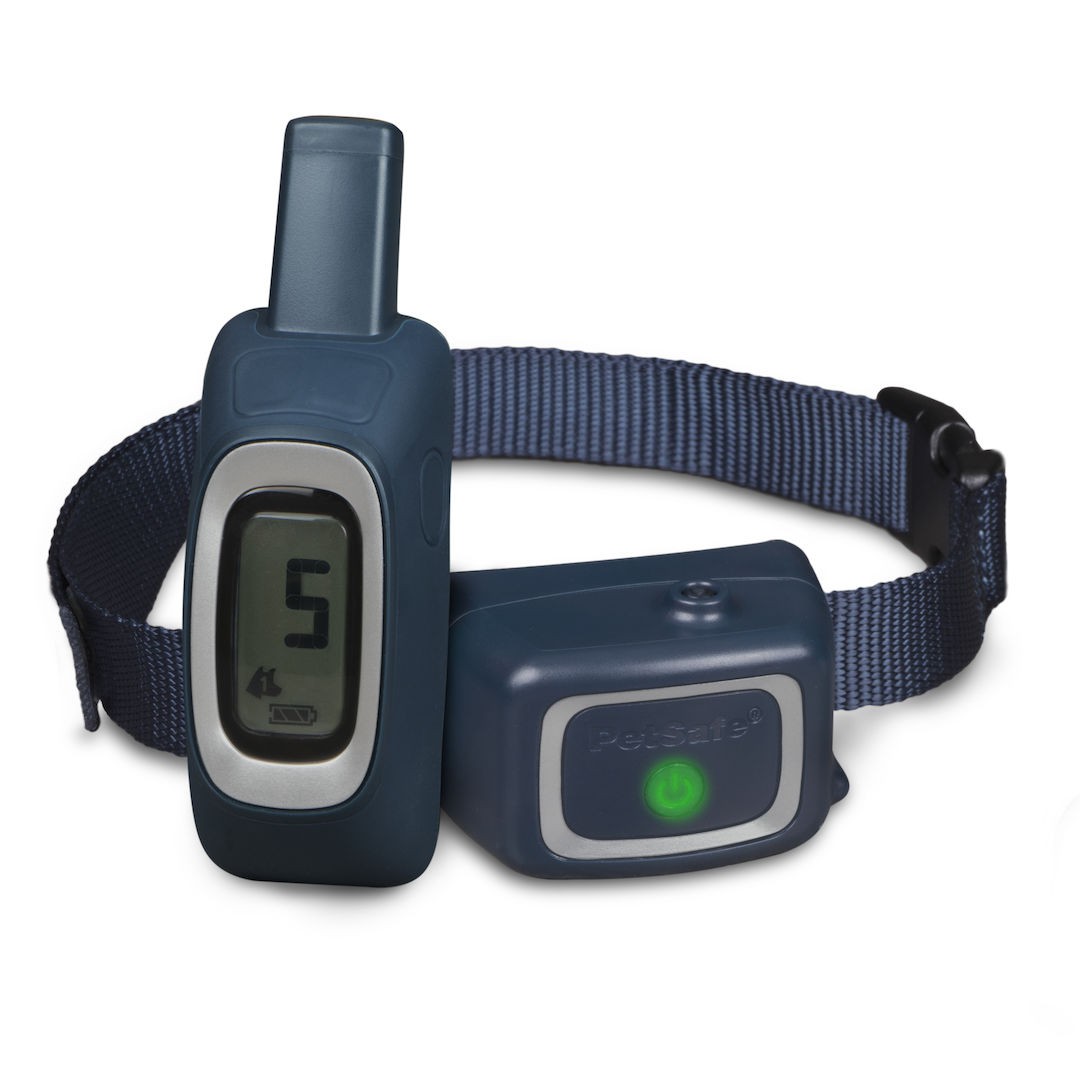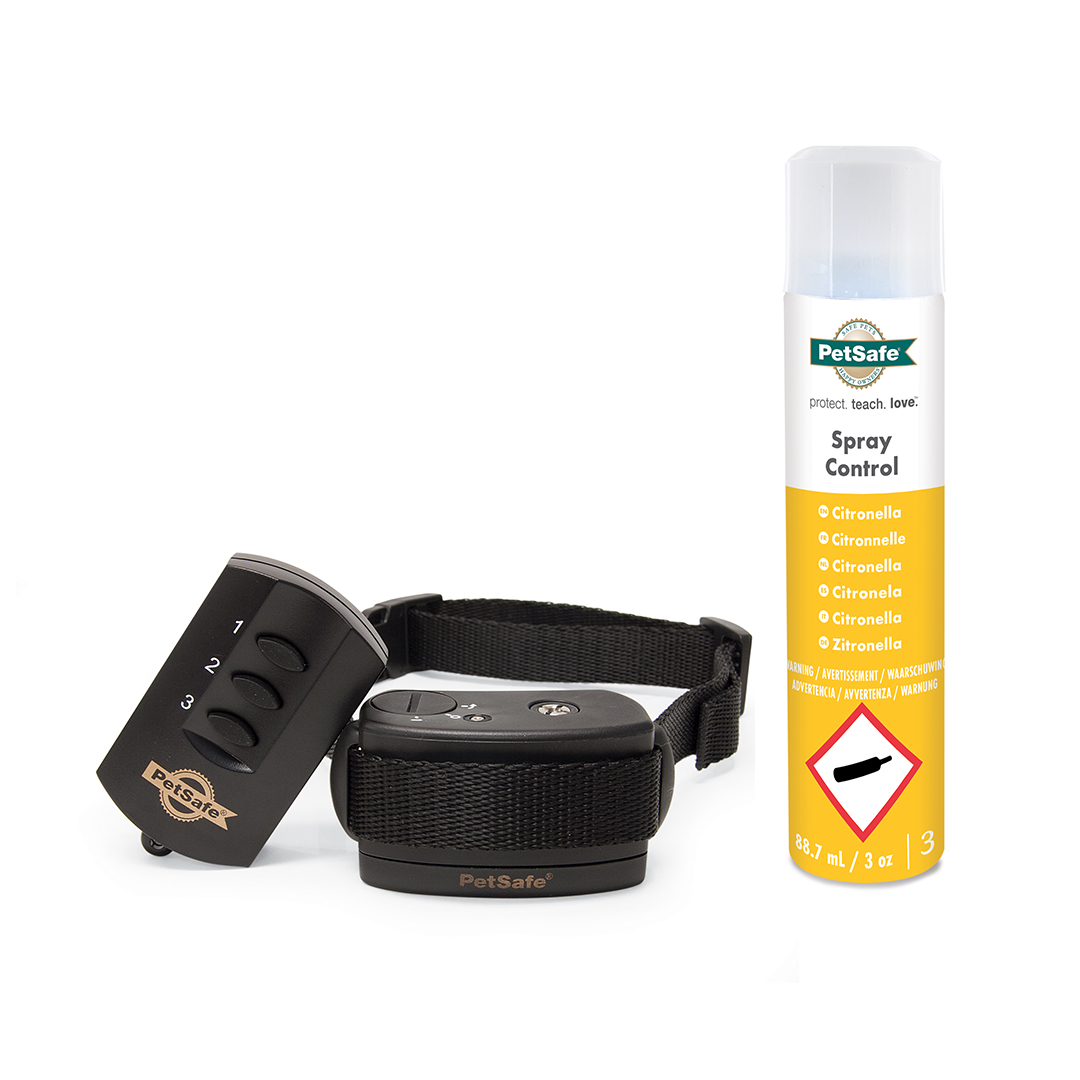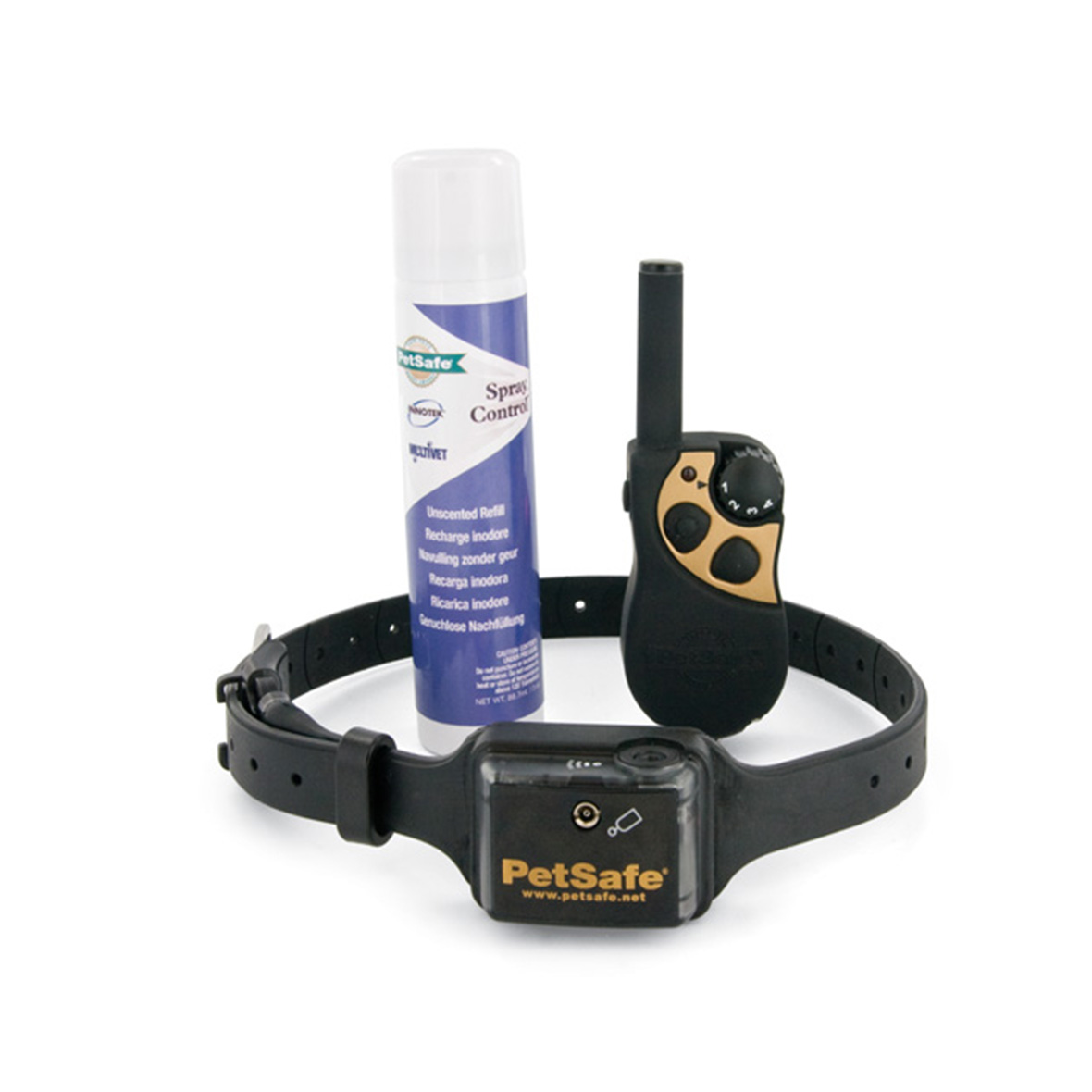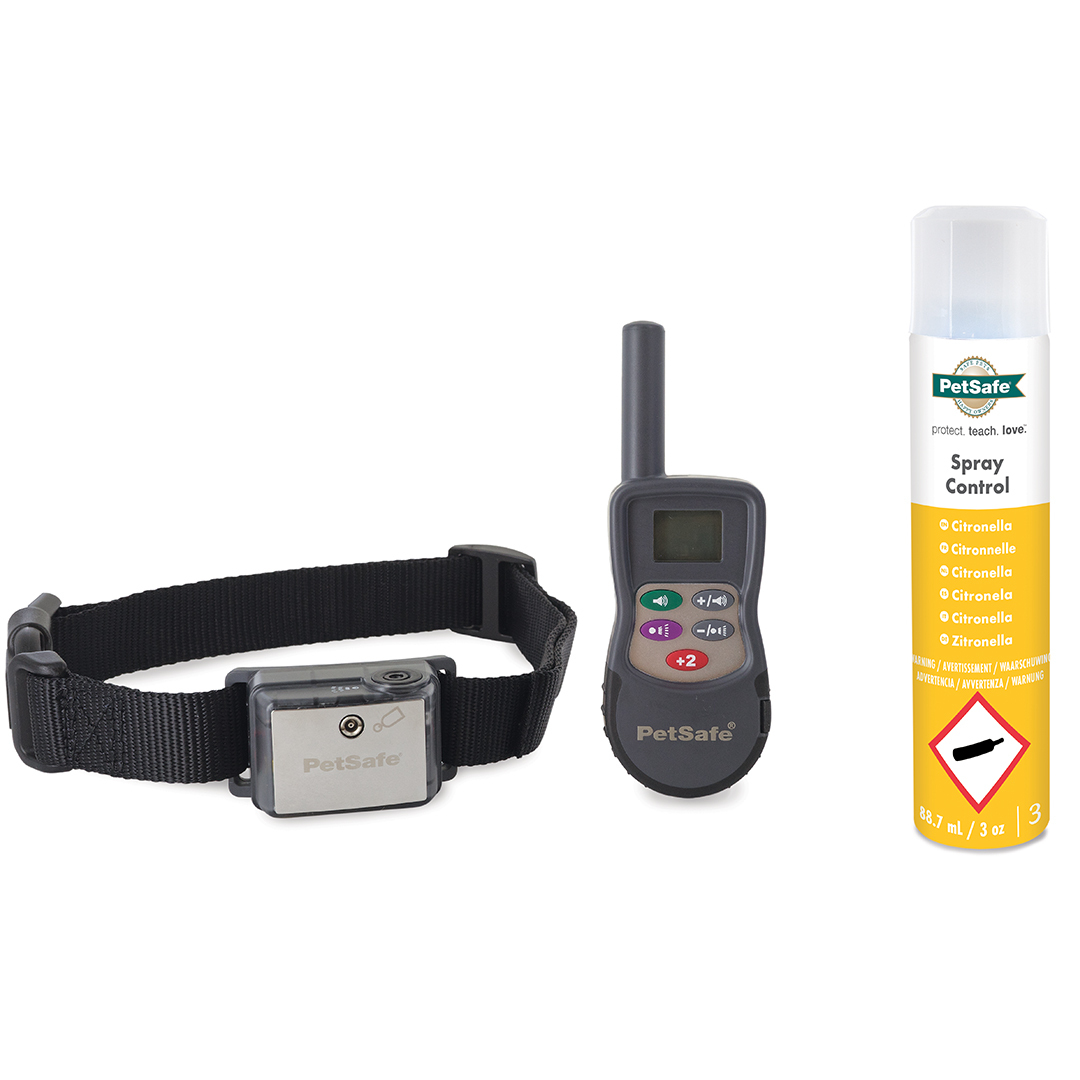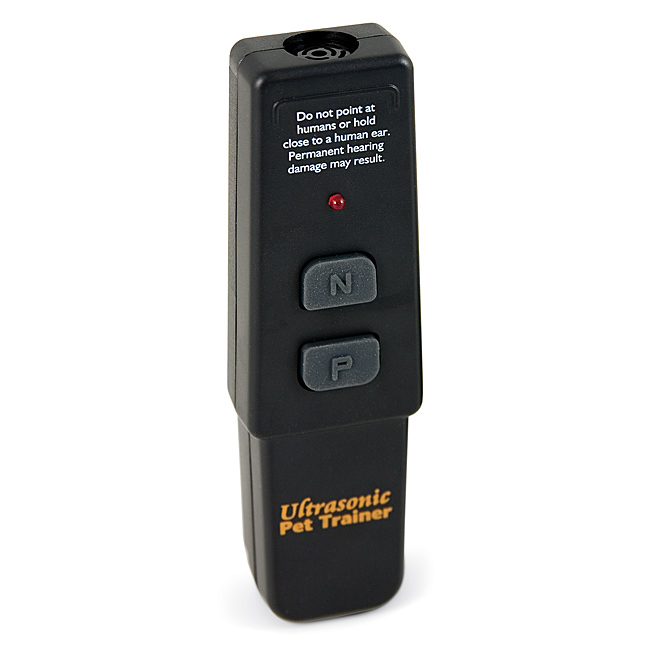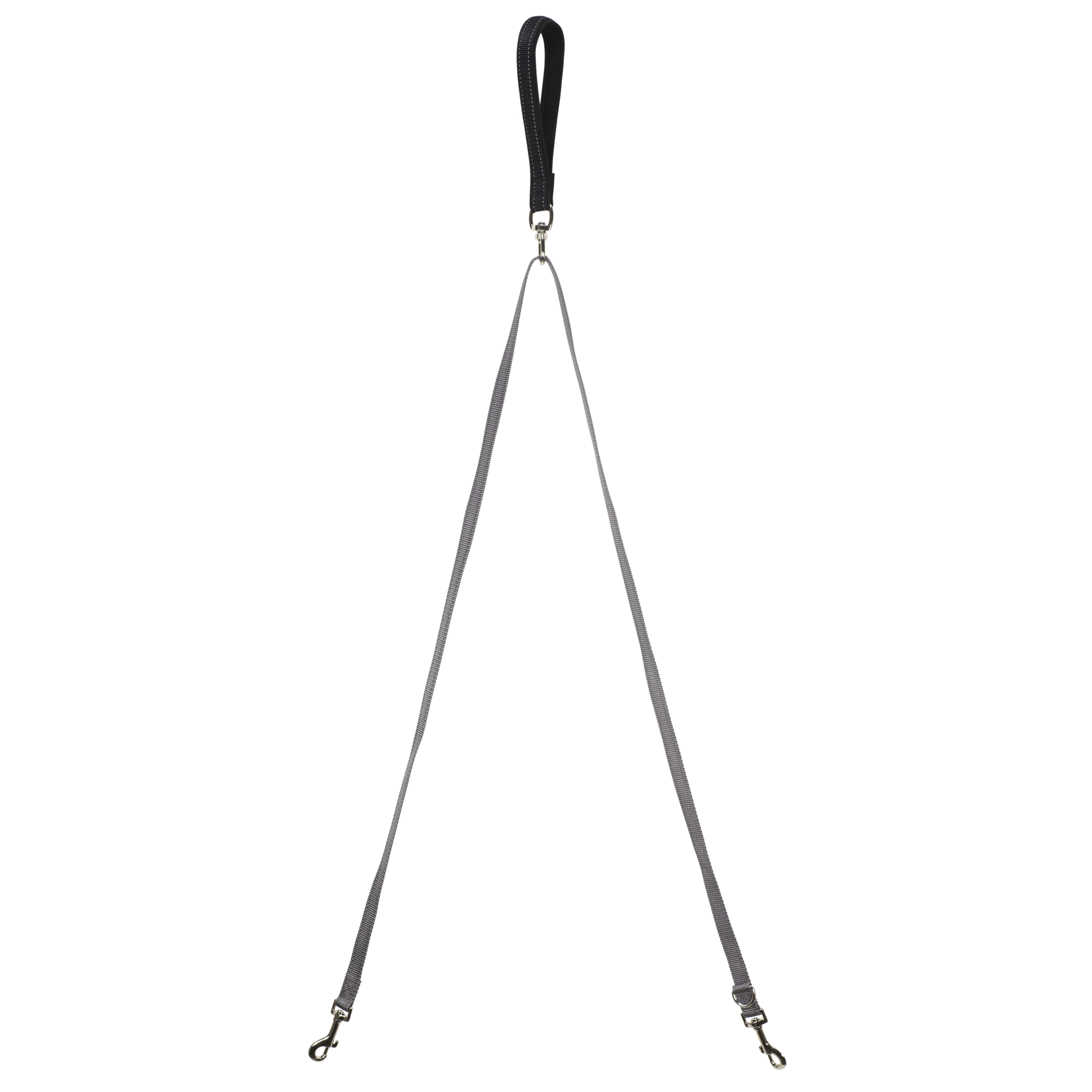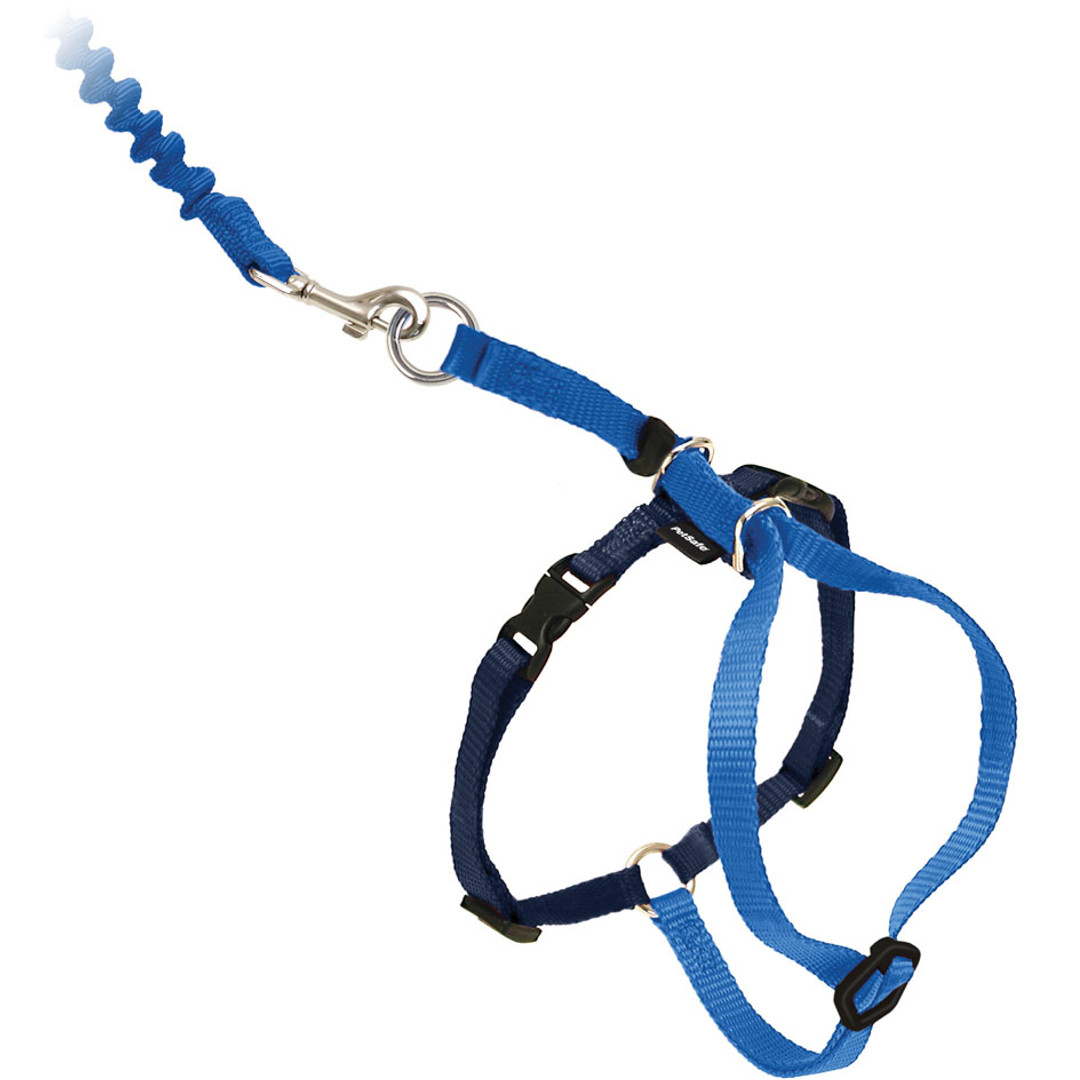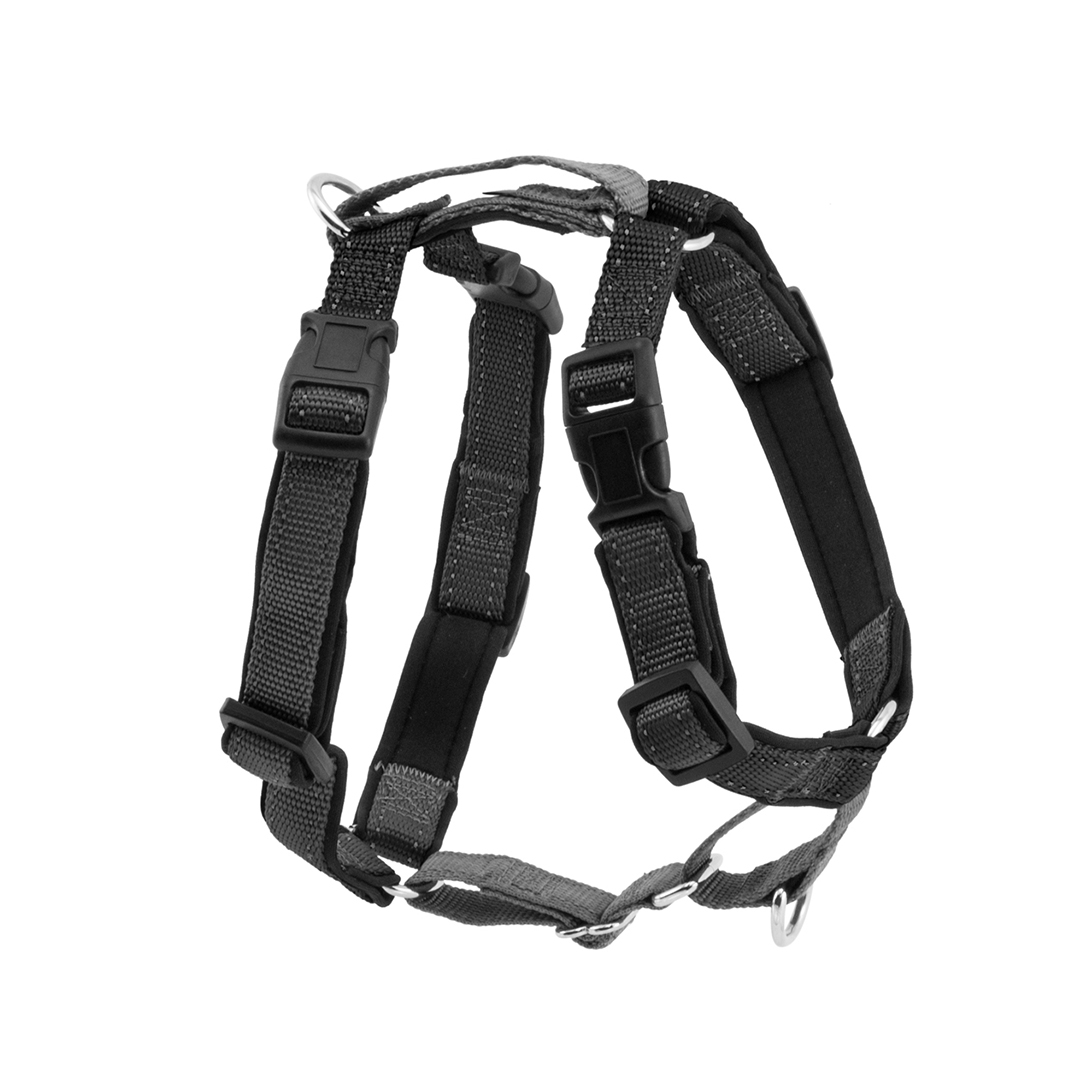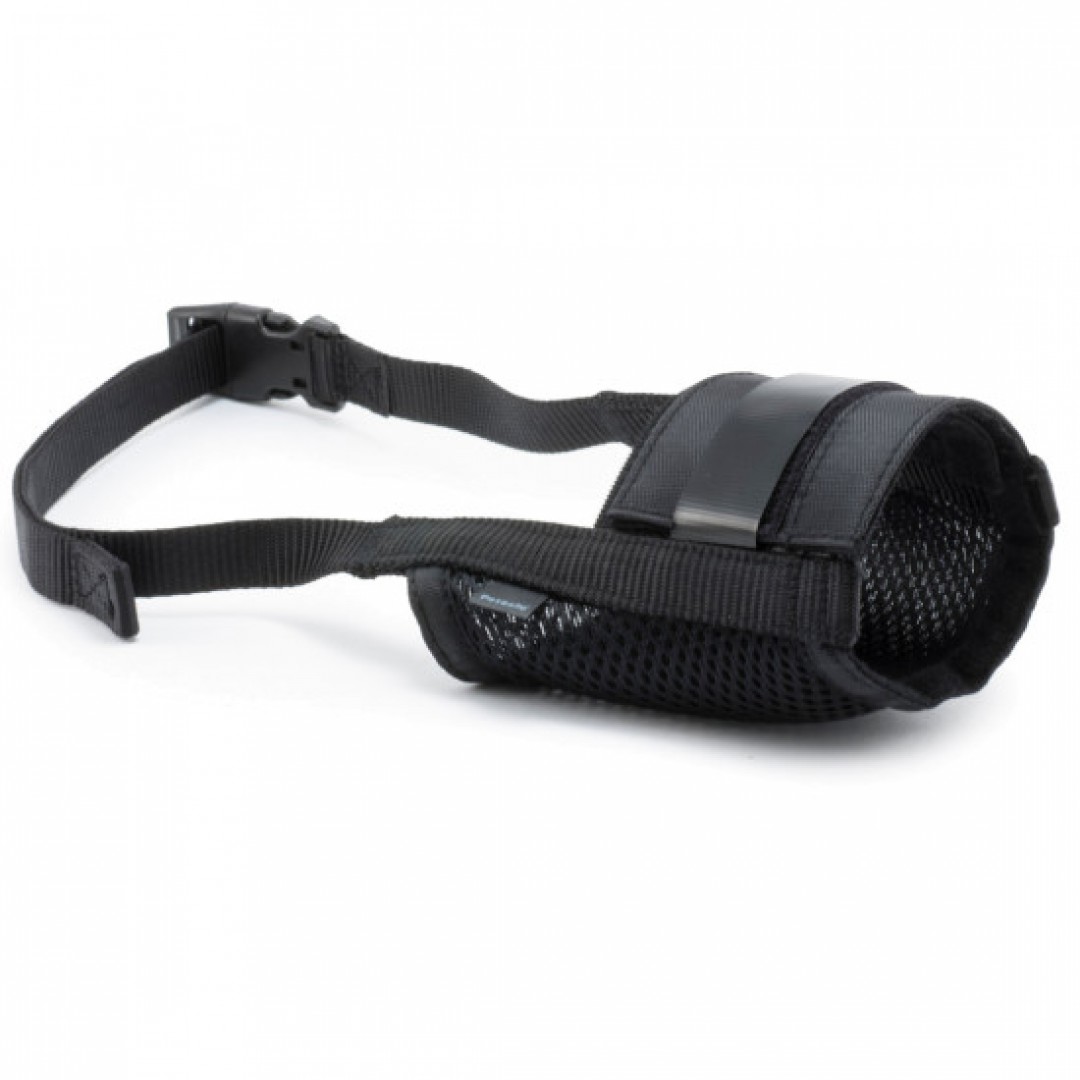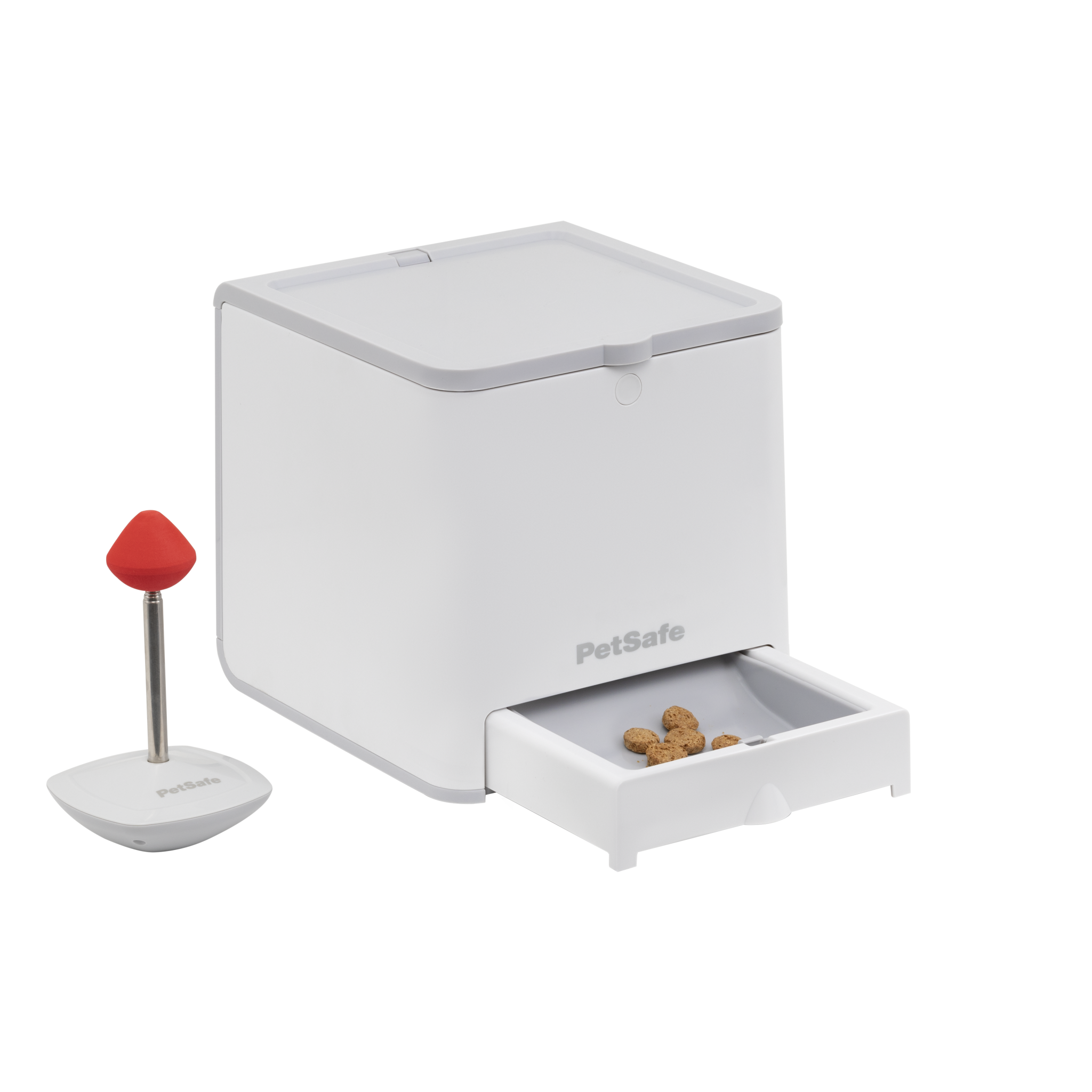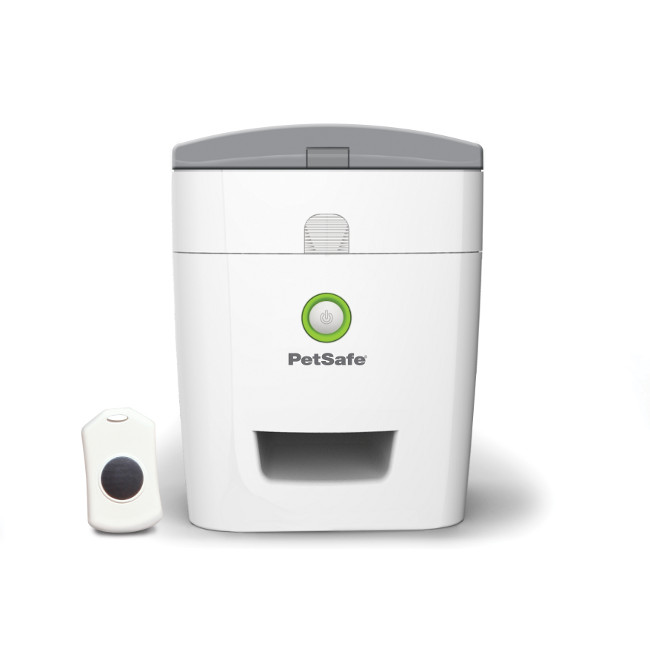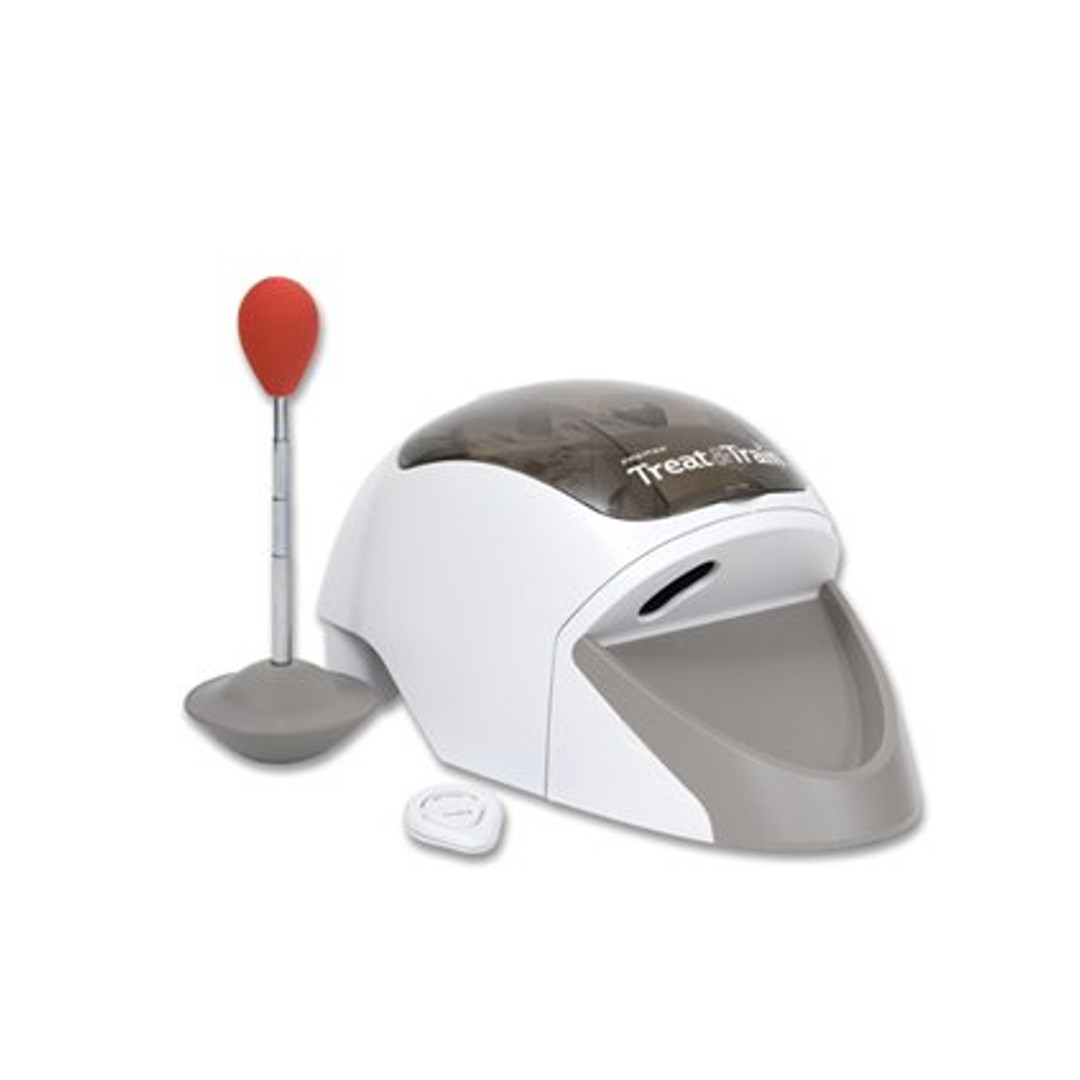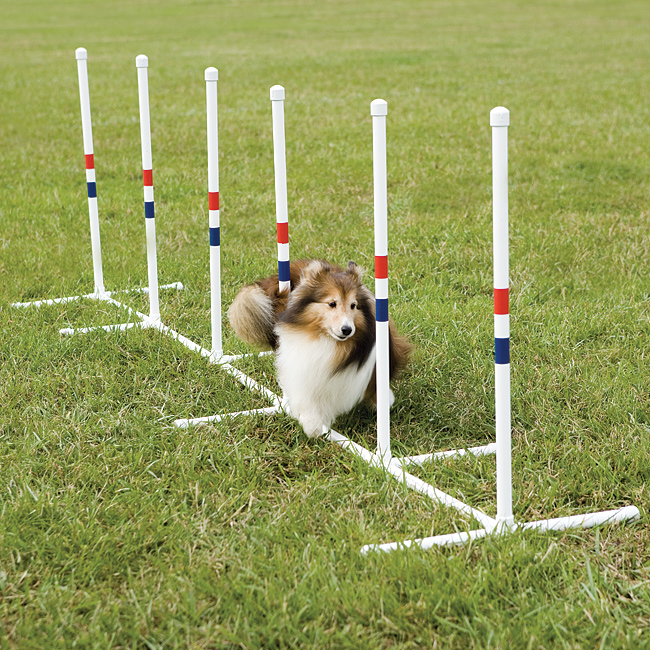For manuals & product support, start typing the name of your product here. You can also browse by category and product below.
Register your product so you get the most out of your warranty and so we can assist you better if you call in for phone support.
Once you have correctly placed the receiver collar on your pet (see your manual or read How do I fit the collar?), it is time to find the stimulation level that is best for him. This is called the Recognition Level. At the right recognition level, you will notice only a slight change in your pet's behavior, such as looking around in curiosity, scratching at his collar, or flicking his ears. Follow these steps to find your pet's Recognition Level.
Your pet should be at least 6 months old and be able to recognise basic obedience commands such as ‘sit’ and ‘stay’.
We do not recommend any of our products be used on aggressive dogs. If you are unsure if your dog is aggressive, please consult your veterinarian or a certified trainer.
Probably not, but it depends on how well your dog listens to your commands without the collar on. He may need to wear the collar from time to time for reinforcement.
For collars with static stimulation
For collars with spray stimulation
Make sure there is enough spray in the collar.
Typical range is 65-75% of the maximum range due to terrain, weather, buildings, cables, hills/valleys, power lines, etc. If you are in a high-influence area, for example near big radio-emitters or high-power-lines, this can reduce greatly the range. The same can happen if you are on the top of a hill while your dog is in the valley, or vice versa.
If you are experiencing less than 50% range or if these environmental factors have been eliminated:
It can be very concerning to find a lost pet and most of us want to find the owner as quickly as possible. Unfortunately, at this time, there is not a way to match the collar with the owner. Please contact your local authorities to understand what services are available in your area to help locate the owner.
The correctly sized harness for your dog is determined by their width/girth measurement, as measured from behind their front legs. Measure your dog's width/girth by wrapping a tape measure around your dog's chest, just behind the front legs.
| Harness Size | Pet Width/Girth | Sample Breeds |
| Extra Small | Girth adjusts from 30 cm - 40 cm | Teacup breeds |
| Small | Girth adjusts from 38 cm - 51 cm | Jack Russell Terriers, Shelties |
| Medium | Girth adjusts from 51 cm - 71 cm | Border Collies, Spaniels |
| Large | Girth adjusts from 66 cm - 91 cm | Labradors, Golden Retrievers, German Shepherds, Rottweilers |
| Extra Large | Girth adjusts from 86 cm - 117 cm | Giant breeds and oversized dogs |
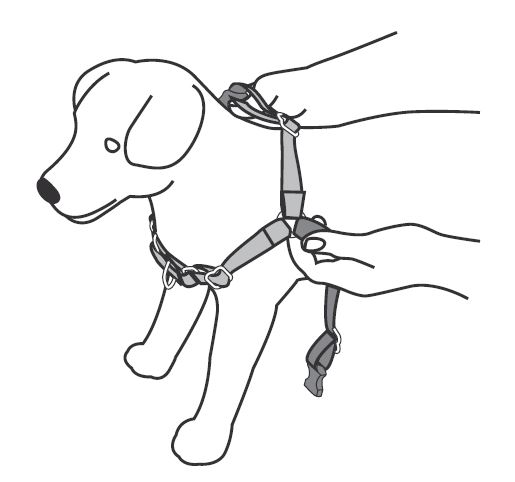
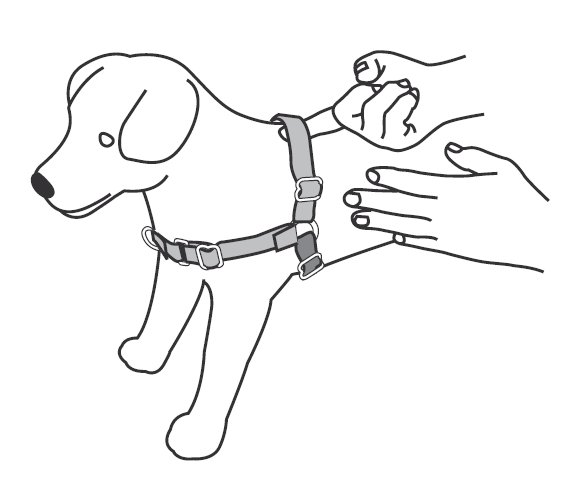
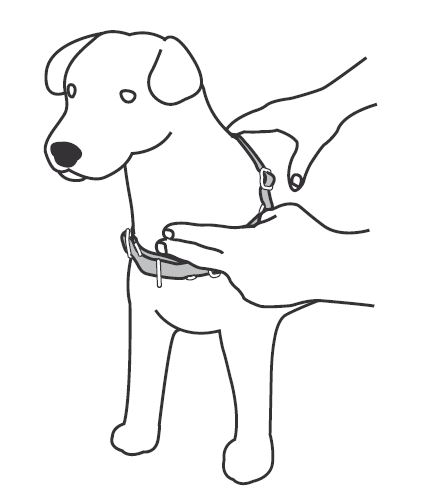
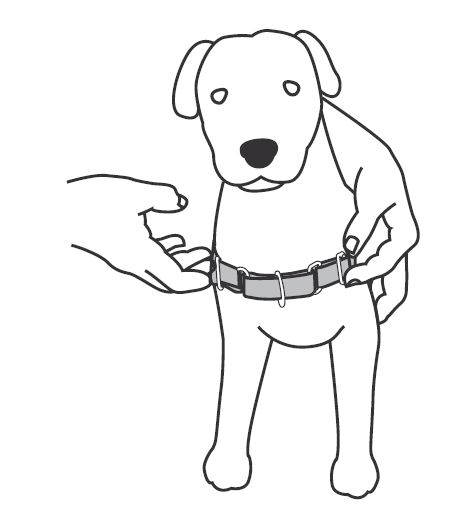
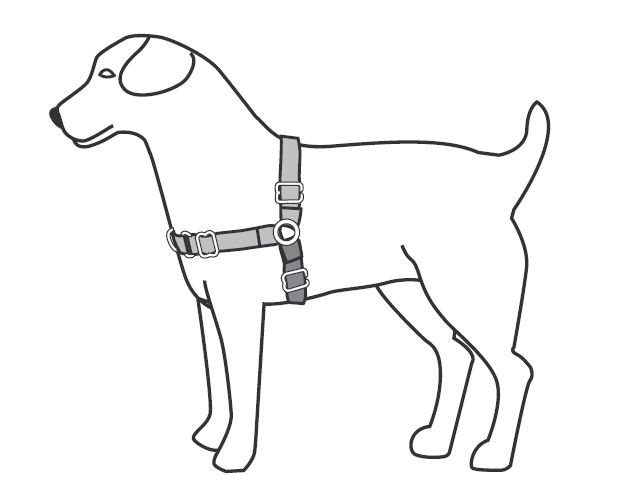
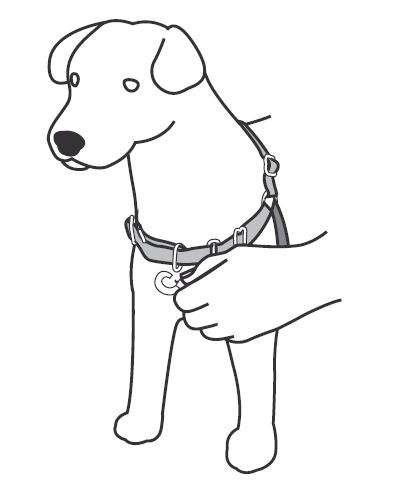
Yes, but please be responsible. The Easy Walk® Harness was created for making walks with your dog enjoyable and pull-free. Should you choose to run or jog with your dog, please be mindful of the possibility of chafing and discontinue use at the first sign of discomfort.
We don't recommend using your harness with a retractable lead. With a retractable lead, your dog is rewarded with additional room on the lead when he pulls ahead. You want your dog to learn to not pull ahead. In addition, a retractable lead will always apply a slight constant pressure, teaching your dog it is okay to continue pulling.
All dogs have a natural opposition reflex - if you push against them, they push back. Any collar that puts pressure at the front of the throat actually works against the owner by increasing the dog's instinct to pull forward. Not only do these products not solve the pulling problem, they can cause choking and pain for the dogs. The Easy Walk® removes a dog's instinct to pull forward by eliminating pressure from the throat area.
Each piece of your harness has an identifying feature. The shoulder strap features an Easy Walk® tag. The chest strap is clearly identified by the martingale loop and the D-ring attachment for the lead. The belly strap is an alternate but coordinating colour.
Fit is crucial to the effectiveness of the Easy Walk® Harness. The width/girth portion (made up of the shoulder and belly straps) provide the foundation for a good fit and must be snug. The chest strap should also be correctly fitted, to avoid any drooping or gaping when the dog walks. If the chest strap will not adjust enough to give you a proper fit that is parallel to the ground, your dog may need a smaller Easy Walk® Harness.
We guarantee the materials and workmanship of the Easy Walk® Harness, but we can't keep your dog from chewing it! Please be sure to supervise your dog while he wears the Easy Walk® Harness and store it safely when not in use. If your dog does chew the Easy Walk® Harness, call our Customer Care Centre.
For dogs with additional training issues like jumping, barking and excessive pulling and lunging, we recommend the Easy Walk® Headcollar as it offers owners much greater control. We also recommend the Easy Walk® Headcollar for dogs that are shy, nervous or fearful. The soft, comfortable nose loop and the snug, high neck strap have a remarkable calming and reassuring influence for these dogs. Professionals and owners alike are amazed at the greater confidence these dogs show when wearing the Easy Walk® Headcollar.
Need a tool for dealing with more serious behavior problems such as aggression? We recommend the Easy Walk® Headcollar and the advice of a professional behaviorist, veterinarian, or trainer. The Easy Walk® Headcollar has been proven to be highly successful when incorporated into a behaviour treatment and modification program.
Consider your dog's weight based on the chart below. Next, look at the shape of the dog's head and snout. Breeds with long slender heads may take a smaller size than other dogs of the same weight. Breeds with wide muzzles may need a slightly larger size. When in doubt, choose the next larger size.
| Harness Size | Pet Size | Sample Breeds |
| Small | Up to 11 kg | Beagles and Shelties |
| Medium | 11 kg - 27 kg | Pointers and Spaniels |
| Large | 27 kg - 59 kg | Labradors and Shepherds |
Fitting is very important with the Easy Walk. 99% of problems that occur with the product are due to an improper fit. When one first purchases the product, it is best to take a few minutes to read the training guide. Here are a couple of tips:
When fitted properly and viewed from the side the Easy Walk will be in the shape of V for Victory. If the neck strap is too loose, the Easy Walk will incorrectly resemble an L for Loser.
Neck Strap fit
The neck strap must be positioned as high on the neck as possible, directly behind the ears and touching the base of the skull in back and above the Adam's apple in front. It should fit very snugly at the top of the neck so that one can barely get a single finger underneath, like a watch strap. It doesn't cause discomfort to the dog.
Nose Loop Strap fit
Loose and comfortable so that the dog can freely open his/her mouth, but not so loose that it can be pulled off over the nose. It should rest close to the dog's eyes and behind the corners of the mouth.
The principle behind the Easy Walk Headcollar is one that allows owners to communicate with their pet in a way that dogs instinctively understand. The nose loop encircles the dog's muzzle and applies light pressure in the same manner in which the lead dogs naturally communicate with dogs lower in rank. Because of the placement of the nose loop, the dog immediately understands his/her place in the hierarchy. The dog considers the owner his/her leader.
Advantages for people
Advantages for dogs
The correctly sized harness for your cat is determined by their width/girth measurement, as measured from behind their front legs.
| Kitten / Small | 23 cm - 28 cm Girth |
| Medium | 27 cm - 36 cm Girth |
| Large | 33 cm - 46 cm Girth |
Connect lead to lead connector.
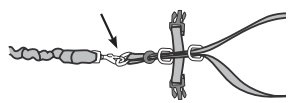
Move sternum slide down to make the opening large enough for the cat’s head. Slide shoulder straps on either side of cat’s head with lead connecter over the withers/back.
Adjust side straps for a snug girth fit.
Chest piece goes between legs and side girth straps behind front legs. Snap in place. Repeat steps 3 and 4 until fit is snug. Note that the connector O-ring should rest on the belly, just behind the cat’s front legs.
You may want to release the girth strap temporarily to make the next adjustment easier. Move the sternum slide to sit just below the cat’s breastbone so it will not ride up to your cat’s throat area. Re-snap the girth snaps into place.
Position the black rubber stopper near the lead connector to keep the shoulder straps in place. Check to see that tightening the lead doesn’t result in the sternum slide riding up too high, putting pressure on the trachea. If it does, adjust the sternum slide to sit lower on your cat’s chest.
If your dog forges ahead of you, gently pull the lead to the side to turn the dog towards you. As he stops pulling, be sure to release the tension on the lead. Use praise and reward your dog with treats and/or petting.
To slow your dog when he is pulling ahead, apply gentle pressure to the lead, pulling gently toward one side of the dog. Release the pressure on the leadwhen the dog is walking nicely next to you.
![]() 0120-208-278
0120-208-278
Monday to Friday
10:00 - 19:00
Need help with your product?
Customer service is at the heart of everything we do. We’re committed to giving you expert advice to ensure you always receive the very best.
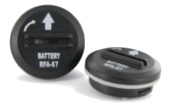
© 2025 Radio Systems Corporation All Rights Reserved. * Registered in the U.S. Patent and Trademark Office. Privacy Statement Cookies Policy
